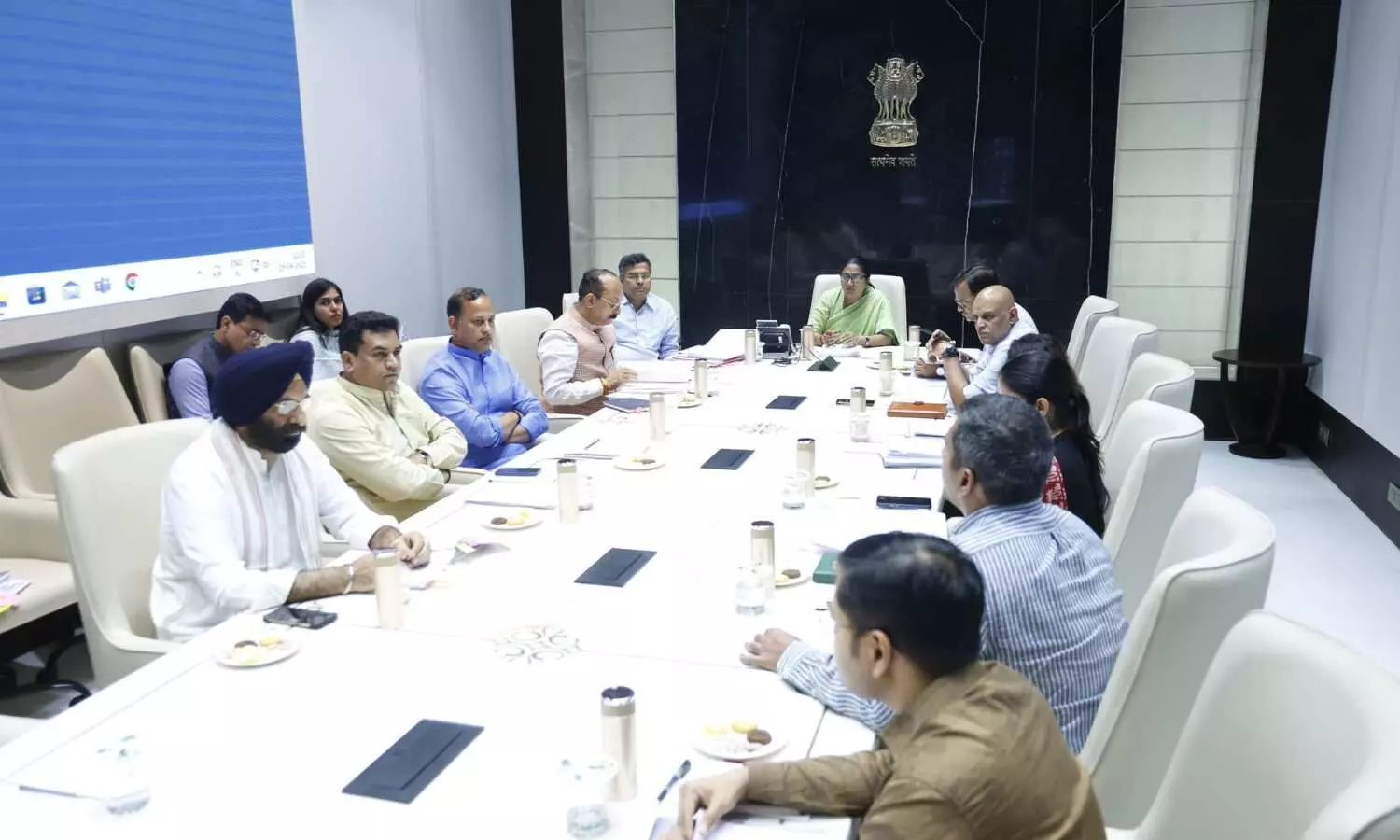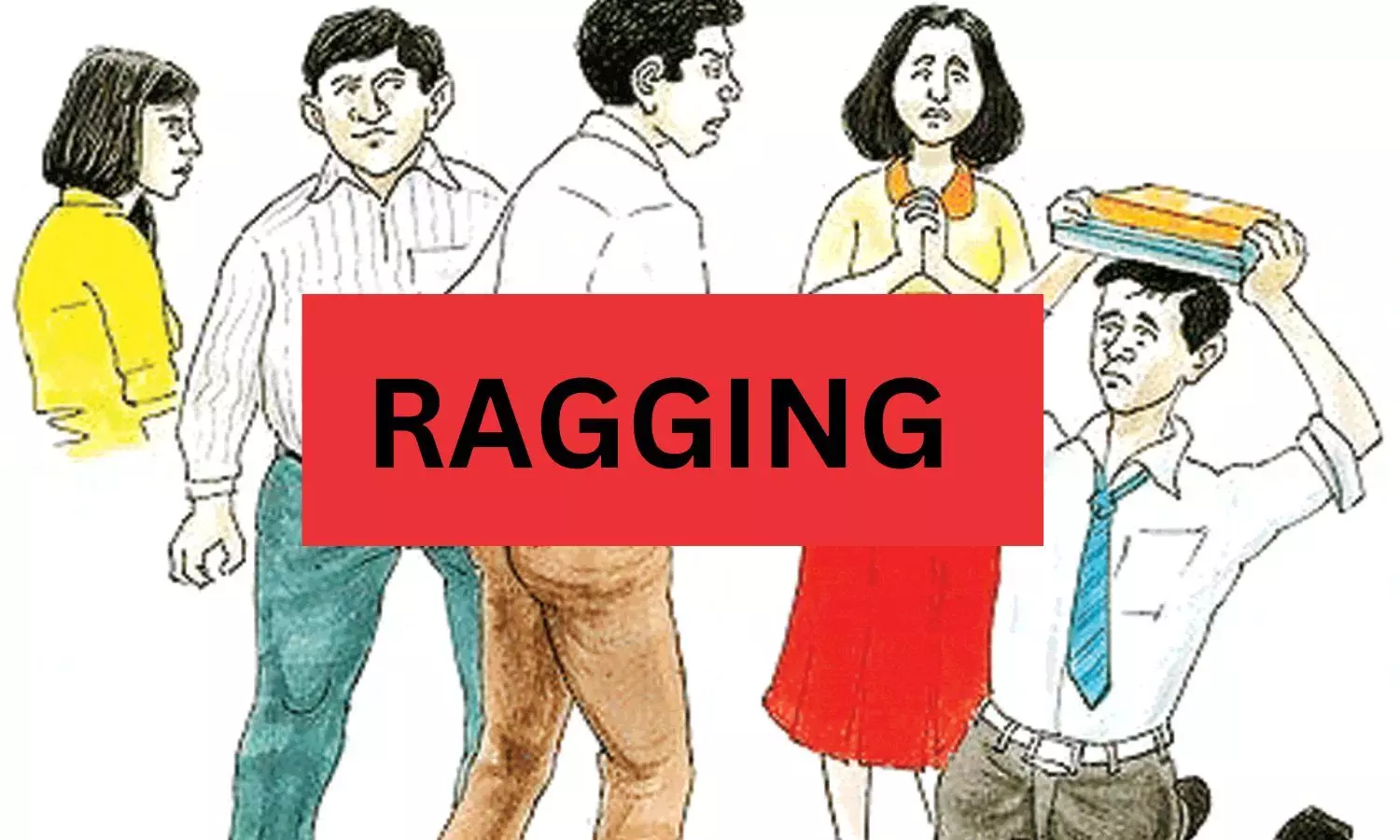Parents with alcohol-related diagnoses are twice as likely to maltreat children, researchers find
Powered by WPeMatico
Powered by WPeMatico
Powered by WPeMatico
Powered by WPeMatico
Powered by WPeMatico
Powered by WPeMatico

New Delhi- Through a notice, the National Board of Examinations in Medical Sciences (NBEMS) has invited online applications for the NBEMS Diploma Final Examination June 2025.
As per the notice, NBEMS is going to conduct the NBEMS Diploma Final Theory Examination – June 2025 on 09th, 10th and 11th June 2025 on a computer-based platform at various examination centres across the country.
On this, the online submission of the application form for the theory and practical exam and practical exam only will be available from today, i.e., April 30, 2025, 03:00 PM to May 20, 2025, 11:55 PM on the official website of NBEMS.
The information bulletin will also be available from today, i.e., April 30, 2025, 03:00 PM, on the official website of NBEMS for the candidates willing to appear for the NBEMS Diploma Final Examination June 2025. The information bulletin will contain important details such as eligibility, exam scheme, schedule, application process, fees, etc.
STEPS TO FILL OUT THE NBEMS DIPLOMA FINAL EXAM JUNE APPLICATION FORM 2025
STEP 1- Visit the official NBE website.
STEP 2- Register with a valid email ID and mobile number.
STEP 3- Fill out the application form with personal, academic, and contact details.
STEP 4- Upload required documents such as a passport-size photograph, signature, and degree certificates.
STEP 5- Pay the application fee online.
STEP 6- Submit the application form and take a printout for future reference.
The National Board of Examinations (NBE) was established in 1975 in New Delhi. It is an autonomous entity within the Ministry of Health and Family Welfare, Government of India. NBE conducts a few examinations, such as DNB final (exit) examinations, Fellowship Entrance and Exit examinations, NEET-SS for admission to DM/Mch/DrNB superspecialty medical courses across India, etc.
To view the notice, click the link below
Powered by WPeMatico

New Delhi: In a bid to strengthen health infrastructure, the Delhi government is expected to decide on key proposals in a meeting scheduled on Tuesday, including outsourcing of staff through PSUs and installing MRI machines in hospitals under a PPP model, official sources said.
The proposals will be discussed in the Cabinet meeting chaired by Chief Minister Rekha Gupta, scheduled for 12 noon, they said, news agency PTI reported.
The Health Department seeks to centralise the outsourcing of staff required for documentation and other formalities at government hospitals and other health facilities of the government by roping in public sector undertakings (PSUs), they said.
Also Read:Ayushman Vay Vandana: Delhi launches Rs 10 lakh health cover for Senior Citizens
Presently, the hospitals and other facilities like clinics hire these personnel through private placement entities, said an official.
The other proposal is regarding the installation of magnetic resonance imaging (MRI) machines through a public-private partnership to meet the growing demand for such crucial scans, he said.
There is a shortage of MRI machines in government hospitals, which needs to be immediately addressed to ensure that patients are not forced to get these tests done from expensive private facilities, he added, reports PTI.
As per a media report in the TOI, “Referring patients to a doctor in OPD or admitting them to hospital for treatment requires a lot of details from the kin and documentation to ensure they get the benefits of all schemes as per their eligibility. The govt has thus decided to engage a public sector undertaking to provide manpower for the purpose,” said an official, requesting anonymity.
“We will begin the process of engaging a company to provide manpower as soon as the cabinet accords approval to the proposal,” the official added. There are 39 state-run hospitals in the capital.
Also Read:Shortage of Senior, Junior Residents at Delhi AIIMS: MoS Health informs Parliament
Powered by WPeMatico

Pune: Taking disciplinary action, BJ Medical College, Pune, has suspended three second-year postgraduate students from the Orthopaedics Department and evicted them from the hostel for allegedly ragging juniors.
The action followed a formal complaint received by the college on Monday, alleging that the second-year PG students had subjected four juniors to mental and physical harassment, including the use of threatening language. A committee was promptly formed to investigate the allegations
Speaking to PTI on the incident, an official from the medical college said, “Three postgraduate students of the state-run BJ Medical College in Pune have been suspended and removed from their hostel for allegedly ragging junior doctors.”
The college took action after it received a complaint against three second-year PG students from the Orthopaedic Department, said Dr Eknath Pawar, dean of the medical college, which is attached to the Sassoon General Hospital.
Also Read:KMCRI ragging: 5 MBBS students suspended for forcing juniors to attend classes as proxies
Sources in the medical college told PTI that the accused targeted four junior medical students from their department. They allegedly harassed the juniors mentally, sometimes physically, and even used intimidating language, said the sources.
“The parents of the students first approached Mantralaya (state secretariat) in Mumbai. On Monday, the college authorities received a complaint. We formed a committee to investigate the matter. Based on the findings, three PG students were suspended and removed from their hostel,” said Pawar.
A probe is underway, he added.
Also Read:GMC Nagarkurnool 3 MBBS students suspended for ragging
Medical Dialogues had earlier reported taking cognisance of a ragging complaint, the Government Medical College (GMC), Nagarkurnool suspended three senior MBBS students for allegedly physically harassing, beating and slapping a first-year junior student in a hostel room. An FIR had also been registered against the accused in connection with the case.
Among the three, one student (Third year) had been suspended for three months, who was reported to be the main culprit, while the other two (Second year) received suspensions of one month.
Powered by WPeMatico

Jaipur: In a recent job notification that went viral on social media, the Rajasthan government has announced that contractual Allopathy Medical Officers will now receive a monthly salary of Rs 28,050. This decision has drawn widespread criticism from the medical community, as it is a major cut from the previous salary of Rs 56,000 per month.
The official advertisement, signed by the Mission Director on April 17, 2025, under the National Health Mission (NHM), announced 162 vacancies for Allopathy Medical Officers. To be eligible, candidates must have an MBBS degree from a recognised institution, completed a mandatory rotatory internship, and be registered with the Rajasthan Medical Council. For this, the government will only pay them Rs 28,050 monthly.
The significant salary cut has angered doctors across the state, who believe they deserve fair pay for the critical role they play in every emergency, saving countless lives. After investing years of hard work and a large amount of money into completing their medical education, they feel disrespected and frustrated by such a low amount.
Also read- Salary Hike! WB Senior Residents to now get Rs 15,000 MORE, Junior Doctors Rs 10,000
Previously, doctors who were employed on a contract basis were earning Rs 56,000 per month, but with the new salary structure, the pay has been slashed by almost 50 per cent. This has come as a major disappointment for doctors, especially at a time when healthcare workers have been demanding better pay and improved working conditions in the public health system for a long time.
Slamming the state government for giving such a low salary, several doctors took to social media to express their frustration. They strongly criticised the significant pay cut for MBBS doctors, especially when compared to other welfare schemes where beneficiaries earn more.
The recruitment notice going viral on the internet and igniting rage among doctors states, “In accordance with the above reference and under the provisions of the Rajasthan Contractual Hiring to Civil Posts Rules, 2022, approval is hereby granted to proceed with the recruitment for vacant contractual posts under NHM through the District Health Committee, considering the urgent need for human resources and operational efficiency. Approval has been received from the Finance Department’s letter No. 152500633 dated 29.03.2025. Recruitment may be carried out either through a walk-in process or on a merit basis no later than 30.03.2026, and action must be taken at the district level accordingly.”
The notice also adds that the government is planning to recruit a total of 2,855 health workers under NHM. The posts include Allopathy Medical Officers, Female Health Workers, Nurses, Lab Technicians, Pharmacists, and Radiographers. All appointments will be made at the district level by the respective health committees.
Along with medical officers, 159 posts have also been announced for Female Health Workers, with a monthly pay of Rs 13,150. Applicants for this role must have completed the Auxiliary Nurse Midwifery (ANM) training or Health Worker Female course and must be registered with the Rajasthan Nursing Council as a B Grade Nurse.
The government has also announced the hiring of 1,941 nurses at a monthly pay of Rs 18,900. Applicants must have completed their senior secondary education and hold a GNM diploma or equivalent qualification, along with registration in the Rajasthan Nursing Council. Additionally, the government is recruiting for 414 Lab Technician posts, 151 Pharmacist posts, and 28 Radiographer posts, each offering a salary of Rs 13,150 per month.
With the new salary structure, healthcare workers have raised concerns that such a drastic pay cut could affect the morale of doctors and their willingness to work passionately. Not only doctors but also the general public slammed the government for paying such low salaries to the healthcare workers.
Sharing the information, one doctor wrote on X (formerly Twitter), “In a shocking move, the Rajasthan government has slashed the monthly salary of contractual doctors from ₹56,000 to ₹28,050, contrary to expectations of a hike. Can it improve the health structure?
Similarly, Dr Harshad Sharma, State executive member at Indian Medical Association (IMA), said in a tweet, “This decision is completely contrary to the previous orders. On March 30, 2022, the then Mission Director, Dr. Jitendra Kumar Soni had fixed the salary of full-time contract doctors at Rs 56,600. Even in another order issued on March 1, 2024, the same salary was fixed for contract doctors.
However, the old doctors will continue to get a salary of Rs 56,600, but the new doctors will get a reduced amount. Experts say that after deducting the contract part, this amount will be only around Rs 25,000. The government’s decision to cut doctors’ salaries by up to 50% is not just an administrative order but a blatant insult to our dedication, sacrifice and spirit of service to humanity. This decision is not only an economic injustice but also a deep blow to the dignity of an ideal profession like medicine. We are the ones who sacrificed our youth under the burden of books, the ones who sacrificed their sleep, festivals, family and personal happiness to save the lives of unknown faces, the same people who risked their lives to protect the country during the storm of the pandemic.”
Dr Lakshya Mittal, National President of United Doctors Front (UDF), tweeted, “Rajasthan- The first state in India where medical education was made a joke. Faculty from YouTube, study by yourself, job on contract, and the salary of Rs 56100 is now only Rs 25000.”
Medical Dialogues had previously reported that despite completing their postgraduate degrees, the doctors in 13 different specialities in Rajasthan are unable to contribute to the State public health sector as the Rajasthan Government has not created any posts of junior specialists, senior specialists, and principal specialists in those specialities in its hospitals.
These specialities include biochemistry, radiation oncology, transfusion medicine, preventive and social medicine, emergency medicine, physical medicine and rehabilitation, palliative medicine, anatomy, physiology, pharmacology, nuclear medicine, family medicine, and hospital administration.
Even though the MBBS doctors have completed their post-graduation in these 13 different specialities in the State’s medical colleges and many are studying the courses, there is not a single approved position in those 13 specialities in medical colleges, district and sub-district hospitals.
Due to this, neither the people nor the State Government are able to utilise the money invested in the specialised education of the doctors studying these specialities. On the other hand, the medical students who are pursuing their PG degrees in these specialities are also worried about their future due to the limited opportunities to work in the State.
Also read- Rajasthan’s Healthcare Paradox: Trained Doctors, But No Jobs in 13 specialities
Powered by WPeMatico

Netherlands: A recent study published in JAMA Cardiology has demonstrated that coronary function testing (CFT) is a feasible and safe procedure across various healthcare settings. The findings highlight the high diagnostic yield of the test, reinforcing its role in assessing coronary vasomotor function.
Notably, the study also found that invasive coronary functional testing to identify the cause of angina in patients with nonobstructive coronary artery disease (ANOCA) can be safely performed at highly experienced and less-experienced centers, further supporting its broader clinical applicability.
“The invasive testing was conducted across 15 tertiary and nontertiary hospitals in the Netherlands, yielding a high diagnostic success rate. Spasm emerged as the most common ANOCA endotype, while the procedure was associated with low rates of both major and minor complications,” the researchers reported.
The researchers note that patients with angina and no obstructive coronary artery disease often have coronary vasomotor dysfunction, including epicardial spasm, microvascular spasm, and microcirculatory dysfunction. Invasive coronary function testing effectively diagnoses these endotypes and has previously been deemed safe in expert tertiary centers. Considering this, Caïa Crooijmans, Department of Cardiology Radboudumc, Nijmegen, the Netherlands, and colleagues aimed to assess the prevalence of vasomotor dysfunction in clinically referred ANOCA patients while evaluating the safety and feasibility of coronary function testing.
For this purpose, the researchers conducted a quality improvement study using the Netherlands Registry of Invasive Coronary Vasomotor Function Testing (NL-CFT), a prospective observational registry involving 15 hospitals, including two tertiary and 13 nontertiary centers. The study included patients with angina and no obstructive coronary artery disease who were referred for a clinically indicated coronary function test (CFT) between December 2020 and January 2024. A complete CFT comprised of acetylcholine spasm provocation testing and the assessment of microcirculatory function. The study evaluated the prevalence of different endotypes based on test results while also assessing the overall safety of the procedure.
The investigation uncovered the following findings:
The researchers found coronary function testing is feasible and safe across tertiary and nontertiary centers, demonstrating a high diagnostic yield. Their findings suggest considering CFT for all patients with angina and no obstructive coronary artery disease, given its effectiveness in identifying vasomotor dysfunction, which was present in 78% of cases.
“Conducted within the Dutch NL-CFT network, the study reported a very low overall complication rate of 1.7%, reinforcing the procedure’s safety. With no observed cases of procedural death, myocardial infarction, or stroke, and comparable complication rates across different healthcare settings, the results support broader clinical adoption of CFT for improved diagnosis and management of coronary vasomotor dysfunction,” the researchers wrote.
Reference:
Crooijmans C, Jansen TPJ, Meeder JG, et al. Safety, Feasibility, and Diagnostic Yield of Invasive Coronary Function Testing: Netherlands Registry of Invasive Coronary Vasomotor Function Testing. JAMA Cardiol. Published online February 19, 2025. doi:10.1001/jamacardio.2024.5670
Powered by WPeMatico
